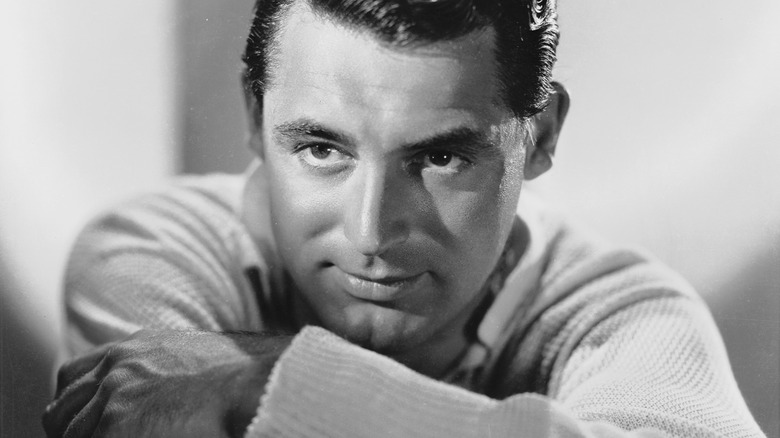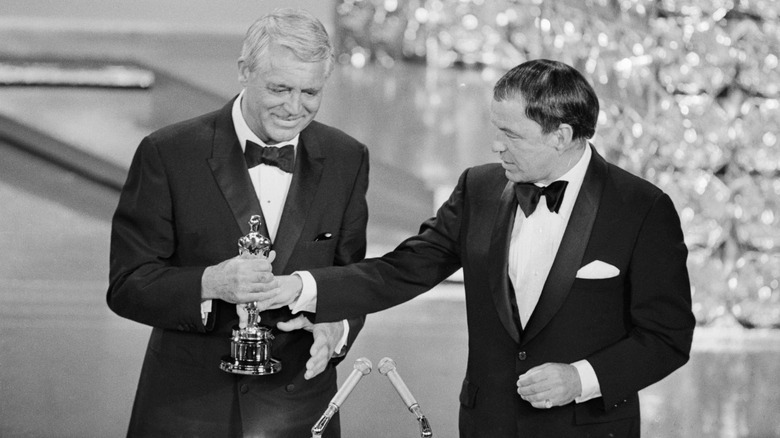Why Did Cary Grant Boycott The Academy Awards?
Actor Cary Grant was among his generation's most popular and dashing leading men. Born Archibald Leach, his 34-year cinema career saw him star in many films that have since gone on to become beloved Hollywood classics. To this day, audiences continue to discover "His Girl Friday," "The Philadelphia Story," and the films he made with Alfred Hitchcock, proving that Grant is a performer with an immortal legacy on the screen. However, Grant was snubbed by the Academy during the height of his career, and the actor wasn't happy about it.
As documented by Yahoo Sports, Grant boycotted the Oscars following the 1958 ceremony. After failing to win the Best Actor prize on the two occasions he'd been nominated, he decided that the event was too politicized. Furthermore, as Marc Eliot, the author of the "Cary Grant" biography, notes, the actor felt that being overlooked was financially costly to him and his family. Winning an Oscar is more likely to boost a film's profits, and Grant was known for his love of money. In Grant's mind, the Academy was taking food off his table, which he felt was unfair given that he'd brought so much money into Hollywood courtesy of a string of successful films.
Grant's grudge with the Academy didn't last forever, though. The actor was eventually given some long-overdue recognition, which helped him mend fences with the institution. However, it came after he stepped away from the spotlight to pursue new ventures.
Cary Grant's post-acting career and eventual Oscar win
Cary Grant retired from acting in 1966 following the release of "Walk, Don't Run," a remake of 1943's "The More the Merrier." He wanted to spend more time with his family, a decision prompted by the birth of his first daughter, Jennifer Grant, with then-wife Dyan Cannon. At the time, Grant was also disillusioned with the roles he was being offered, and the rest is history.
That said, Grant still stayed busy after stepping away from acting. He became a consultant and board member for a cosmetics company called Fabergé, a gig he accepted because he had access to a private jet. Furthermore, he didn't completely turn his back on show business, as he joined MGM Studios as a board member and hosted a stage show called "A Conversation with Cary Grant."
In 1970, Grant was awarded an honorary Oscar for his contributions to acting. His buddy Frank Sinatra presented the trophy, and Grant actually showed up to accept it, ending his 12-year hiatus from the ceremony.

